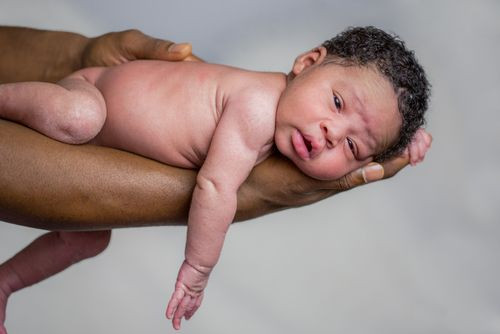African-American Women Can Add Low Birth Weight To Their List Of Diabetes Risks

Researchers focusing on the high incidence of type 2 diabetes in African-American women have found that low birth weight may be a contributing factor to a woman's risk. The study, published in Diabetes Care, found that a high prevalence of low birth weights, evident among African-American populations, may be the reason why one out of three women between the ages of 65 and 74 have diabetes.
Certain races are more inclined to developing type 2 diabetes. Among them are African-Americans, Hispanics, American Indians, Asian-Americans, and Pacific Islanders. And given that women with diabetes tend to lead a poorer quality of life than men, women from these races are especially vulnerable. African-American women with diabetes also experience greater disabilities due to amputations or kidney failure from diabetes-related complications.
Genes, poor health and nutrition, a lack of access to proper medical care, and poverty are all thought to contribute to an increased risk of diabetes. And the effects of a low birth weight have been researched before. In order to further validate the effects on the African-American population, the researchers conducted a large-scale study involving more than 21,000 African-American women.
The women were enrolled as part of the Black Women's Health Study program, which assessed the impact of birth weight, current age, family history of diabetes, body mass index, physical activity, and socioeconomic status on the development of type 2 diabetes over 16 years. The study showed that women with a low birth weight — less than 2.5 kilograms, or about 5.5 pounds — had a 13 percent higher chance of developing type 2 diabetes than those with a normal birth weight. Women with a very low birth weight of less than 1.5 kilograms were at a 40 percent higher risk of developing the disease.
During the study, the researchers found that body size did not seem to affect whether a woman developed diabetes. This was because there was a clear association between low birth weight and diabetes, even in women who were not obese.
“African-American women are at increased risk of developing type 2 diabetes, and also have higher rates of low birth weight than white women," lead author Edward Ruiz-Narváez said in a statement. "Our study shows a clear relationship between birth weight and diabetes that highlights the importance of further research for this at-risk group."
There are two popular theories that explain why this happens. One is the "thrifty phenotype hypothesis," by which the body of a baby born with a low birth weight immediately recognizes its lack of nutrition, and adjusts its metabolism to absorb more nutrition. This somehow leads to an imbalance in insulin production, which eventually leads to type 2 diabetes. The second theory is called "fetal insulin hypothesis,” and is based on the idea that genes affecting insulin function also have a negative effect on birth weight. Recent studies have discovered these genes. Some of these genes, such as those that encode melatonin receptors, have been discovered in recent studies to support this hypothesis.
Source: Ruiz-Narvaez E, Palme J, Gerlovin H, et.al. Birth Weight and Risk of Type 2 Diabetes in the Black Women's Health Study: Does Adult BMI Play a Mediating Role? Diabetes Care. 2014.
Published by Medicaldaily.com



























